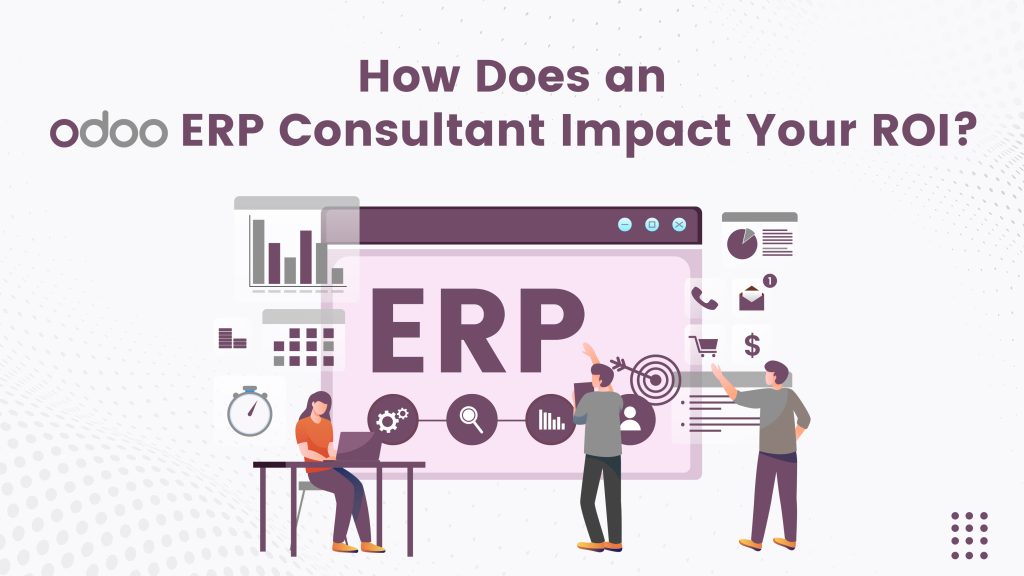
In today’s highly competitive market, supply chain efficiency is a crucial determinant of business success. Enterprises need robust systems to streamline processes, optimize resources, and adapt quickly to market demands. Enter Odoo ERP, a versatile enterprise resource planning solution that redefines how businesses manage their supply chains.
In this blog, we’ll explore how Odoo ERP improves supply chain management (SCM) and helps businesses thrive. Whether you’re a small-scale operation or a large enterprise, Odoo ERP’s integrated functionalities can transform your SCM processes, driving efficiency and profitability.
What is Odoo ERP?
Odoo ERP is an open-source enterprise resource planning software that provides a suite of integrated business applications. It is highly modular and flexible, offering tools for accounting, inventory, manufacturing, sales, human resources, and, of course, supply chain management.
With over 7 million users globally, Odoo ERP has established itself as a reliable solution for businesses looking to optimize their operations. Its user-friendly interface and customizable features make it a top choice for companies across industries.
The Importance of Supply Chain Management
A well-managed supply chain ensures that products move smoothly from suppliers to customers while minimizing costs and maximizing efficiency. Key elements of SCM include:
- Inventory Management: Avoiding stockouts and overstocking.
- Demand Planning: Forecasting customer needs accurately.
- Procurement: Sourcing raw materials efficiently.
- Warehouse Management: Ensuring streamlined storage and retrieval processes.
- Logistics: Managing the movement of goods effectively.
Inefficiencies in any of these areas can lead to increased costs, delayed deliveries, and dissatisfied customers. This is where Odoo ERP comes in, offering a centralized platform to manage these components seamlessly.
Key Features of Odoo ERP for Supply Chain Management
Odoo ERP’s modular design enables businesses to select features specific to their SCM needs. Here are some key functionalities:
1. Inventory Management:
- Real-time inventory tracking
- Automatic stock replenishment
- Multi-location inventory support
2. Demand Forecasting:
- AI-driven predictions
- Data analysis and reporting tools
3. Procurement:
- Supplier management
- Automated purchase orders
- Cost analysis
4. Warehouse Management:
- Barcode scanning
- Batch and serial number tracking
- Optimized warehouse layouts
5. Logistics and Transportation:
- Integration with shipping carriers
- Delivery scheduling
- Route optimizationThese features work together to streamline the supply chain, making Odoo ERP an invaluable tool for modern businesses.
How Odoo ERP Improves Supply Chain Management
- Revolutionizing Inventory Management
Odoo ERP provides real-time visibility into inventory levels across multiple locations. With automated replenishment features, the software ensures you never run out of stock or overstock items, both of which can harm profitability.
Key Benefits:
- Automated reordering minimizes human error.
- Tracking tools improve accuracy and reduce wastage.
- Detailed reports help managers identify trends and optimize inventory.
- Demand Forecasting with Precision
Forecasting customer demand is critical to avoiding supply chain disruptions. Odoo ERP uses advanced analytics and machine learning to predict market trends and customer behavior.
Key Benefits:
- Accurate forecasts prevent overproduction or underproduction.
- Seasonal trend analysis allows businesses to plan ahead.
- Integration with sales data ensures demand planning aligns with market realities.
- Optimizing Procurement Processes
Procurement is often riddled with inefficiencies due to manual processes and poor supplier relationships. Odoo ERP simplifies this by automating purchase orders and tracking supplier performance.
Key Benefits:
- Automated procurement reduces administrative workload.
- Supplier scorecards help evaluate and improve vendor relationships.
- Cost tracking ensures procurement aligns with budgets.
- Streamlined Warehouse Management
Efficient warehouse operations are at the heart of supply chain management. Odoo ERP offers tools to manage storage, picking, and packing processes seamlessly.
Key Benefits:
- Barcode scanning accelerates inventory updates.
- FIFO (First In, First Out) and LIFO (Last In, First Out) methods improve stock rotation.
- Warehouse layout optimization reduces time spent on order fulfillment.
- Enhancing Logistics and Transportation
Timely delivery is essential for customer satisfaction. Odoo ERP integrates with leading shipping providers and includes route optimization features to reduce costs and ensure punctual deliveries.
Key Benefits:
- Real-time tracking keeps customers informed.
- Route optimization saves fuel and time.
- Integration with multiple carriers provides flexibility in choosing shipping methods.
Benefits of Implementing Odoo ERP
Adopting Odoo ERP for supply chain management offers numerous benefits, including:
- Cost Reduction: Streamlined processes reduce operational costs across the supply chain.
- Increased Efficiency: Automation eliminates repetitive tasks, allowing employees to focus on strategic activities.
- Improved Decision-Making: Real-time data and analytics provide actionable insights for better planning.
- Scalability: Odoo ERP grows with your business, making it ideal for both small and large enterprises.
- Enhanced Customer Satisfaction: Faster delivery and accurate order fulfillment lead to happier customers.
Conclusion
Odoo ERP is a powerful solution that transforms supply chain management by automating processes, improving visibility, and enabling data-driven decision-making. With its modular structure and user-friendly interface, businesses can tailor the platform to meet their unique needs.
For companies aiming to stay competitive in today’s dynamic market, implementing Odoo ERP is not just an option—it’s a necessity. By leveraging its comprehensive features, businesses can build a resilient, efficient, and customer-centric supply chain.

